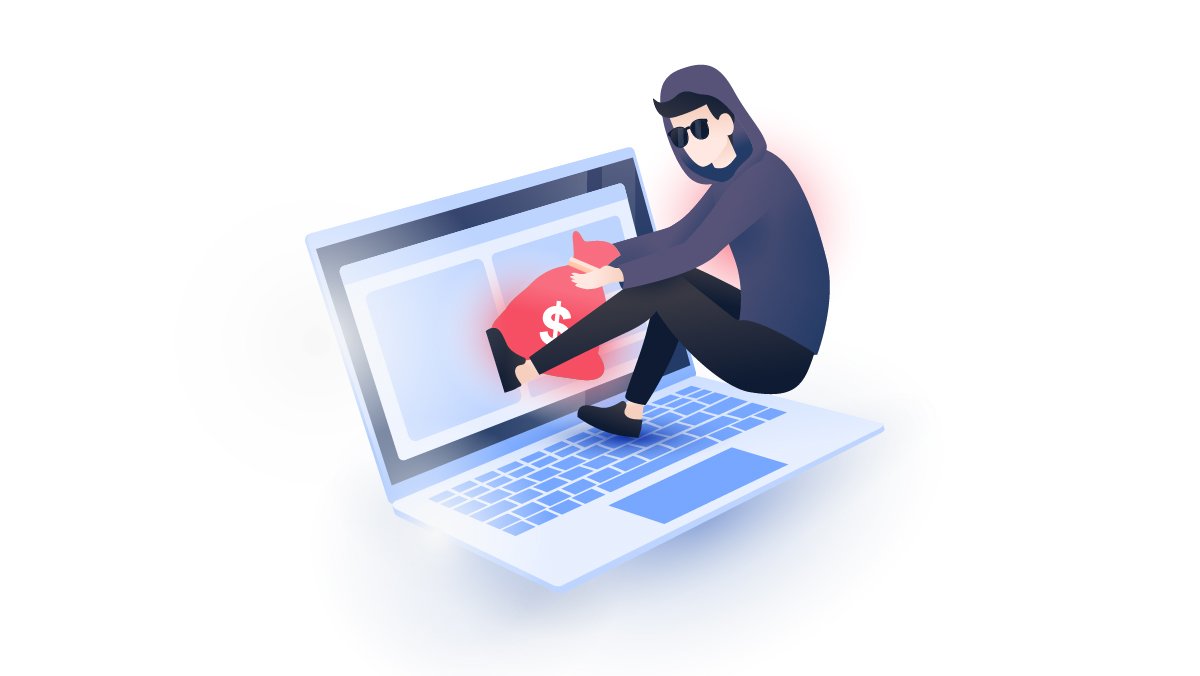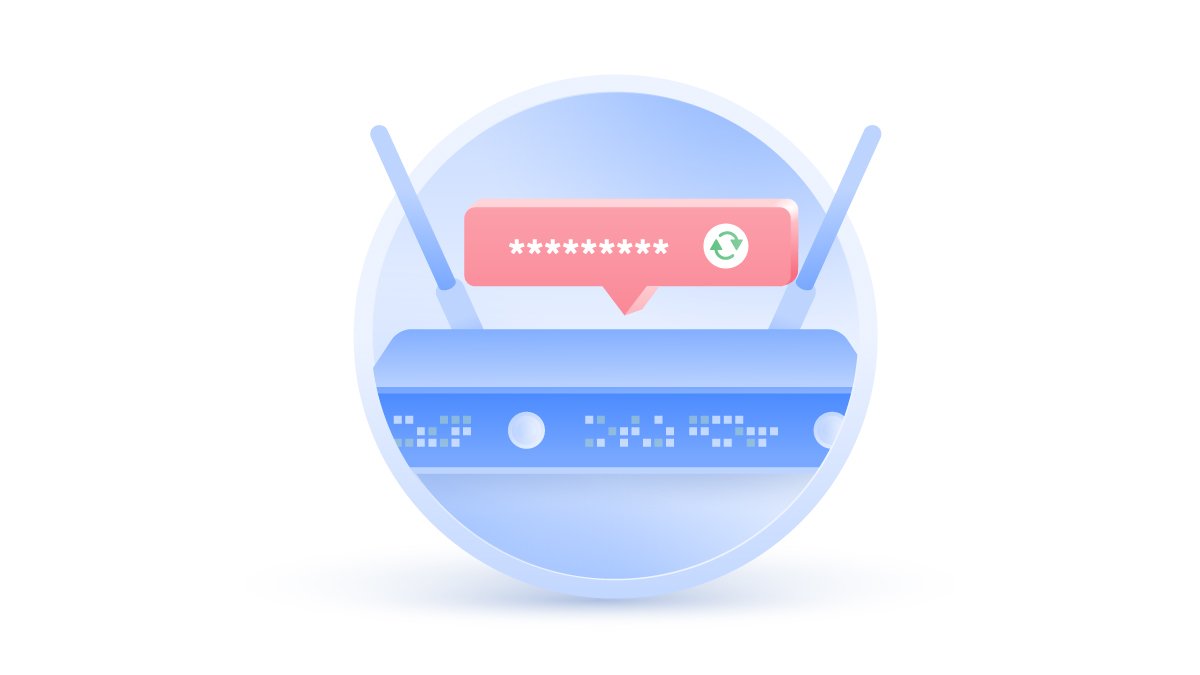Bandwidth throttling — what is it and how to stop it
There are few things more frustrating than endless buffering, especially when you're trying to watch a show or game online. It could be that your bandwidth is being throttled. But how can you tell if an internet service provider (ISP) is controlling your internet speed? And if they are, is there a way to stop it?
Zen Bahar
Jan 03, 2022 · 5 min read

Contents
- What is bandwidth throttling?
- Why do ISPs throttle your bandwidth?
- Am I being throttled?
- Is bandwidth throttling legal?
- How do I stop bandwidth throttling?
- Your mobile data can also be throttled
- Can a VPN help with internet throttling?
- Why is NordVPN good for avoiding bandwidth throttling?
- What else can a VPN do?
What is bandwidth throttling?
So what is bandwidth throttling? Bandwidth throttling is when your ISP deliberately slows down your internet. You may have reached your monthly data cap, or perhaps you’ve forgotten to pay a bill. However, ISPs may still throttle your bandwidth even with an unlimited contract.
Why do ISPs throttle your bandwidth?
ISPs won’t throttle everyone — it depends on how your online activity looks. ISPs can see what websites you visit and, depending on that information, they can decide whether to throttle your connection or not.
ISPs can throttle your bandwidth for the following reasons:
- Heavy bandwidth usage may slow down internet traffic for other users in the same area, so ISPs try to curb traffic for those engaging in bandwidth-heavy activities. Some ISPs can’t uphold the promises made when you originally made the contract – super fast internet with unlimited data is expensive to provide for everyone. Due to the nature of online entertainment, many ISPs simply can’t keep up with constant 4K streaming or gaming;
- Some ISPs limit how much high-speed data you can use per month. If you notice sluggish speeds towards the end of the month – you’ve probably gone over your data cap. You can always monitor your data usage by logging in to your broadband account;
- Some ISPs prioritize certain services over others and allocate greater bandwidth when you use them. The popular theory claims that these services pay ISPs for a greater user experience. For example, If you spend a lot of time on Netflix, for example, while your ISP has ‘fast lane’ contracts with Disney+, it’s very likely your Netflix connection will slow down;
- ISPs can also throttle bandwidth to prevent server overloads and crashes if too many users connect to a single server.
Am I being throttled?
You’ve probably asked yourself, “Am I being throttled?”. We will explain how to check if your internet is being throttled.
If your internet speed drops suddenly for no apparent reason, your ISP likely throttles your bandwidth. Lagging videos or slow downloads are obvious red flags, but you can simply perform an internet speed test to determine whether you experience any speed drops. There are tons of speed-checking tools available online that are really easy to use. However, some ISPs can artificially inflate your speed test results, so keep in mind that it is not a foolproof way.
Here are the steps to follow when you want to find out if someone is throttling you:
- Check your speed with a speed test. ISPs usually throttle bandwidth when users download, stream, watch videos and play games, or during the peak hours;
- Connect to a VPN;
- Measure your speed once again. If you see that it has improved, it’s quite likely that your ISP throttles you.
Alternatively, you can use the Internet Health Test. It checks your connection speed across popular access points and detects slowdowns.
Of course, make sure to check how much bandwidth your internet plan offers to make sure your throttling is not the result of data capping. This is a process where ISPs limit bandwidth due to users exceeding their data limits.
Is bandwidth throttling legal?
Bandwidth throttling is not illegal in most countries. In some cases, it is even necessary as it helps ISPs manage their network usage and allocate bandwidth. The absence of it could even result in an unstable service or connection disruptions.
However, as with most online tools, bandwidth throttling can be used for ill purposes too. An unproven but popular theory is that big media sites pay ISPs for faster load times; it’s one of the ways ISPs make money. In return, ISPs may throttle competitor sites or favor their proprietary sites, manipulating your exposure to specific sites and information.
Paid prioritization used to be illegal (and still is in the EU), but since the US revoked net neutrality laws in 2018, control of the internet has largely been left to corporations. Unfortunately, this gives some of the bigger providers opportunities to limit visits to sites they don’t approve of by throttling your bandwidth to a crawl.
End-service sites, like Netflix, can also choose to lock or limit their bit rate. Netflix has done this on a few occasions, but the purpose was to provide higher-quality streaming at the cost of speed in order to prevent users from exceeding their data caps. Fewer data caps meant higher viewership.
Some countries, like Singapore, have made throttling illegal. But the problem is that it is really difficult to control throttling activities, and ISPs still curb users’ bandwidth. Users usually don’t notice any changes, especially in cases when ISPs slow down particular websites or activities. Also, it is really difficult to gather evidence and identify patterns proving that a company engages in throttling activities.
How do I stop bandwidth throttling?
While it is challenging to avoid bandwidth throttling entirely, here are a few ways to minimize it:
- Use a VPN. VPN will encrypt your traffic, and your ISP won’t see what you do online. It helps in cases when throttling is implemented for specific websites or services. In this case, ISP can’t see that you use those services and curb your traffic;
- In case an ISP throttles you due to your data cap, upgrade your internet plan to get more bandwidth or try to save up bandwidth throughout the month;
- If throttling becomes really annoying and unjustified, change your ISP.
Your mobile data can also be throttled
Just last year, Germany’s Deutsche Telekom was found to be throttling YouTube and Amazon Prime to a rate of 1.5 Mbps. In the UK, Giffgaff and O2 networks throttled YouTube and Netflix to 1 and 1.5 Mbps. The average global speed is 6.8 Mbps. That’s a good reason to use a VPN on your phone.
Can a VPN help with internet throttling?
A VPN service hides everything you do online by encrypting your traffic. Since your traffic will look gibberish to the ISP, they won’t choose you first when they look for high-priority targets.
However, no matter if you’re using a VPN or not, your ISP can still throttle the speed for all users during high-traffic periods of the day. Some providers just can’t keep up with the amount of data processed, even though they promised you ‘unlimited plans.’
Why is NordVPN good for avoiding bandwidth throttling?
NordVPN is the best choice to decrease unethical bandwidth throttling based on your online actions. Its ultra-fast speeds guarantee you the best performance whatever you do. NordVPN offers tons of servers to choose from, so you can always find the one that works best for you.
Moreover, NordVPN uses ultra-strong encryption and will protect your privacy.
What else can a VPN do?
VPNs were created to protect personal privacy, security, and freedom of speech. Providing a potential solution to bandwidth throttling is just one bonus – here’s what else NordVPN can do:
- Provides fast connection speeds;
- Encrypts your traffic and protects you from hackers and snoopers;
- Can be used on up to 6 devices;
- NordVPN has servers in most territories, so you can choose the best one for you;
- Changes your IP, so no one can see your virtual location;
- Its Dark Web Monitor function can notify you if your leaked data appears on the dark web;
- NordVPN’s NordLynx protocol guarantees you super-fast speeds;
- It’s easy to use — you can enjoy top-notch protection with just a single click.



